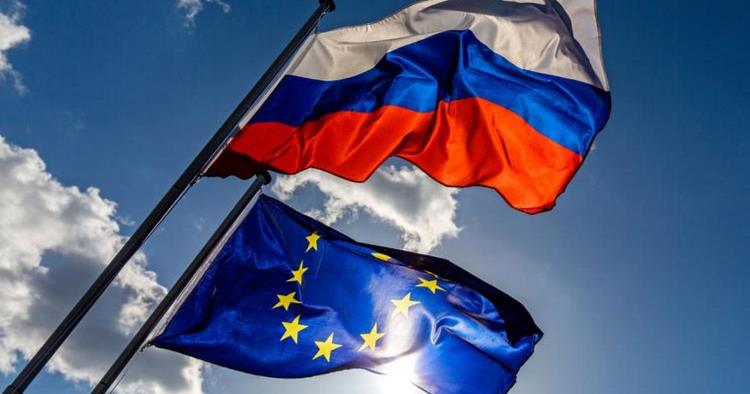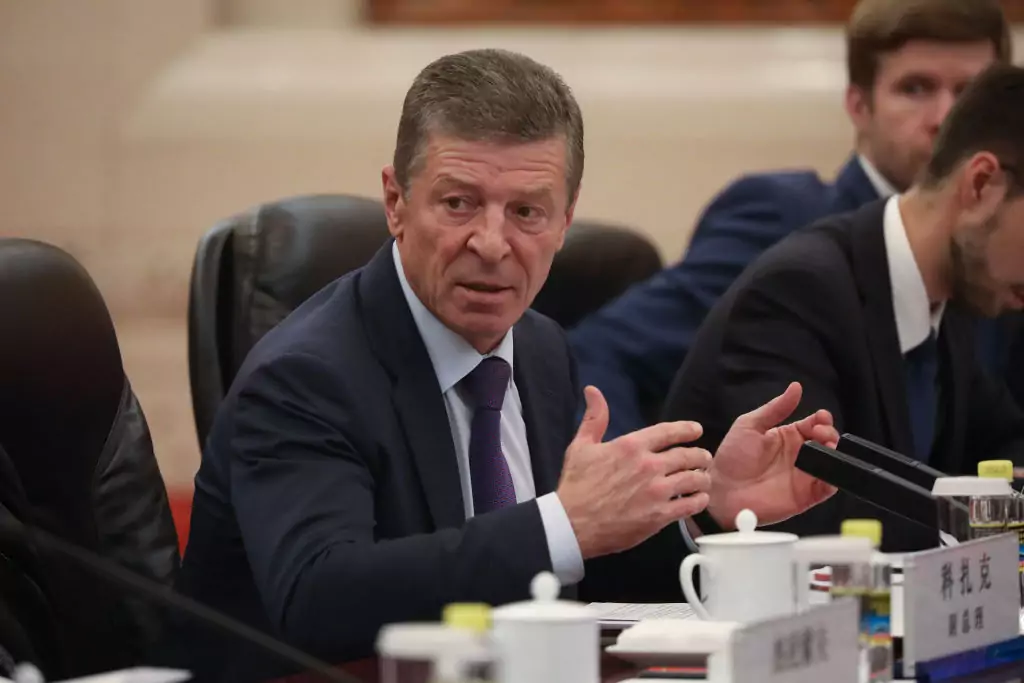
Anti-Western Rhetoric Intensifying in Russian Media
Anti-Western Rhetoric Intensifying in Russian Media
Executive Summary:
- The Kremlin seeks to restore normal relations with the West as a bargaining chip for negotiations on Russia’s war against Ukraine, despite intensifying anti-European rhetoric in Russian media.
- Pro-Kremlin analysts, especially from military-linked outlets, increasingly accuse Europe of Nazism and suggest deliberate strategies for Moscow to destabilize European governments through potential military confrontations and economic pressures.
- Russian strategists propose creating anti-U.S. influence zones in Latin America and the Arctic, indicating an intention to exploit geopolitical tensions and weaken U.S. negotiating leverage despite the diplomatic thawing between Moscow and Washington.
Amid talks to end Russia’s war against Ukraine, the Kremlin appears interested in restoring normal relations with the West, and the demand for this normalization has become one of Putin’s key negotiating conditions (see EDM, March 28, April 1; Radio Free Europe/Radio Liberty, April 1). One example of this is that Germany, Russia, and the United States are discussing the resumption of oil supply via the “Friendship” (Druzhba) pipeline to Germany. According to independent journalists’ investigations, U.S. firms are planning to acquire Rosneft’s stake in the RSK oil refinery in Schwedt from its German subsidiary Rosneft Deutschland. Journalists also report that the Donald Trump administration wants to invest in restarting the gas pipeline as a “strategic asset” that might be used to establish peace (Istories.media, March 13). Russian military analysts do not hide their joy at the prospect of foreign brands returning to collaborating with Russia (Military Review, March 16). Aggressive rhetoric against Europe, now referred to as “Russia’s main enemy,” however, is increasing in Kremlin propaganda (Voennoedelo.com, February 3). Pro-Kremlin analysts hope the United States will, willingly or unwillingly, help Moscow weaken Europe.
Writers at the website “Military Review,” which is close to the Russian Ministry of Defense, write that the U.S. plans to “cleanse the rotten blood out of the heads of European state leaders.” They say that “by pushing European governments into an arms race, U.S. President [Donald Trump] is deliberately creating financial problems for these countries” and is pushing Europeans to send peacekeepers to Ukraine. The authors at “Military Review” are certain that Moscow will immediately destroy such a peacekeeping corps, and the residents of European countries will overthrow their governments over a “stream of coffins into Europe” (Military Review, March 11).
Beyond the narrative that all of this is supposedly Trump’s plan, it is evident that pro-Kremlin experts are seriously considering the possibility of a military confrontation with Europe to provoke the overthrow of European governments. The Kremlin had similar hopes at the beginning of its war against Ukraine, and Putin called on the Ukrainian military to overthrow the “anti-Russian junta” (YouTube/@bbcnewsrussian, February 24, 2022).
The Valdai Discussion Club, which is close to the Kremlin, published an article in March referring to Europe as “a political and intellectual ash heap” that has completely lost its sovereignty. The author of the article, Timofey Bordachev, the Club’s program director, writes that “such a situation in Europe presents certain problems” for Eurasia, and Russia will have to “expend efforts on containing it” (Valdai Discussion Club, March 13). Bordachev does not formally call for war with Europe, but for what he calls “cooperation.” This is a softer version of the strategy proposed in “Military Review,” where Russia should support those friendly to Moscow and put pressure on those who are hostile (Military Review, March 15). Bordachev draws a parallel between this tactic and Ukraine, assuring that there too “we see a significant number of citizens who actively or passively do not support the actions of the group which seized the country.” He calls for not leaving the “European righteous … to fight alone against their worthless politicians” (Valdai Discussion Club, March 13). Putin used the “defense” of some righteous people (Russian-speakers or friends of Russia) as a pretext for invading Ukraine. His bet on forcing the Ukrainians into a pro-Russian coup failed, but there is no guarantee that the Kremlin will learn from its mistakes.
Another alarming tendency among pro-Kremlin analysts is the increasing accusation of “Nazism” in Europe and discussions of the need to “remember the goals of de-Nazification” (see EDM, February 24, 2022, August 5, 2024, January 14; Kremlin.ru, November 28, 2023). Such rhetoric is even featured in official government sources, such as Russia’s official “Parliamentary Newspaper” (Parlamentskaya gazeta, May 17, 2023). Russian military experts, in turn, insist that fears of possible Russian aggression against the Baltic countries and Poland are “the fantasies of Western warmongers” (Military Review, March 15). The Kremlin also called Russia’s plans to invade Ukraine in 2022, voiced by Western countries, “information madness” (The Moscow Times, February 15, 2022).
European countries are not the only ones that figure in the Kremlin’s aggressive plans. Despite the thawing of relations with the United States, Russian military analysts advise maintaining a constant threat to the enemy, thereby keeping it in their sights. They advise creating anti-U.S. hotbeds in Mexico and Canada and searching out other sore points that can be used to weaken the United States. They also advise deploying an anti-missile early-warning system in the Arctic to counteract U.S. influence and create permanent bases “with Oreshnik and hypersonic missiles” in Venezuela, Nicaragua, and Cuba (Military Review, March 12). Similar proposals from the Kremlin to weaken the U.S. negotiating position by creating tension between the Trump administration and other countries have been cited in U.S. media, specifically citing a report prepared for the Kremlin by an analytical center closely linked to the Russian Federal Security Service’s (FSB) 5th Service (The Washington Post, March 12).
An article from “Military Review” examines the possibility of a temporary alliance between Russia and the United States against the European Union and the People’s Republic of China (PRC). Not long ago, propagandists called the PRC Russia’s close friend, but now it appears to be considered at best a “situational partner” and at worst a competitor or even enemy (Smotrim.ru, January 26). “Military Review” authors claim that the PRC was never a friend of Russia, did not assist it in the war, complied with sanctions against it, and, most importantly, is interested in weakening Russia (Military Review, March 12). It is difficult to imagine that Moscow would dare to take any real action against Beijing despite the Kremlin’s demonstrative renunciation of the PRC. The aggressive plans of pro-Kremlin experts regarding Moscow’s geopolitical relationships with its “enemies” demonstrate Russia’s increasingly isolated position.


